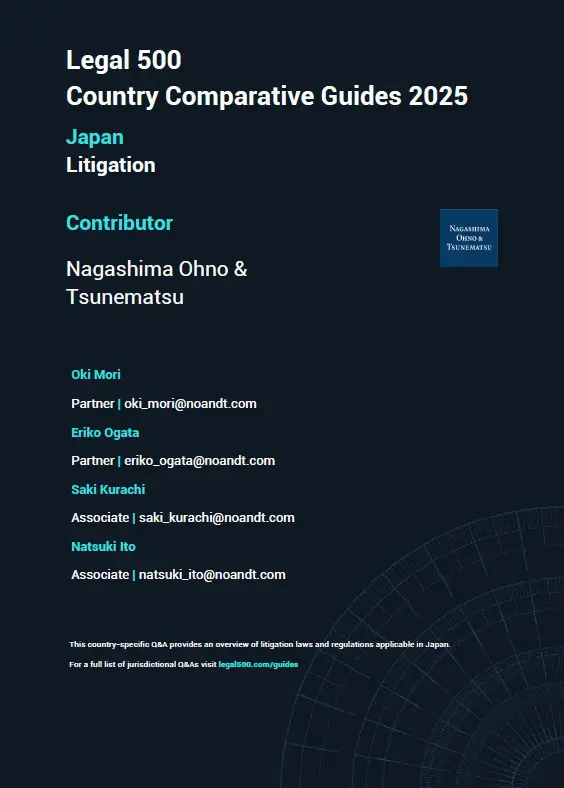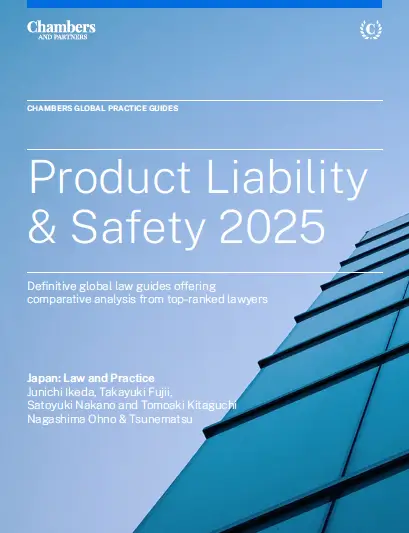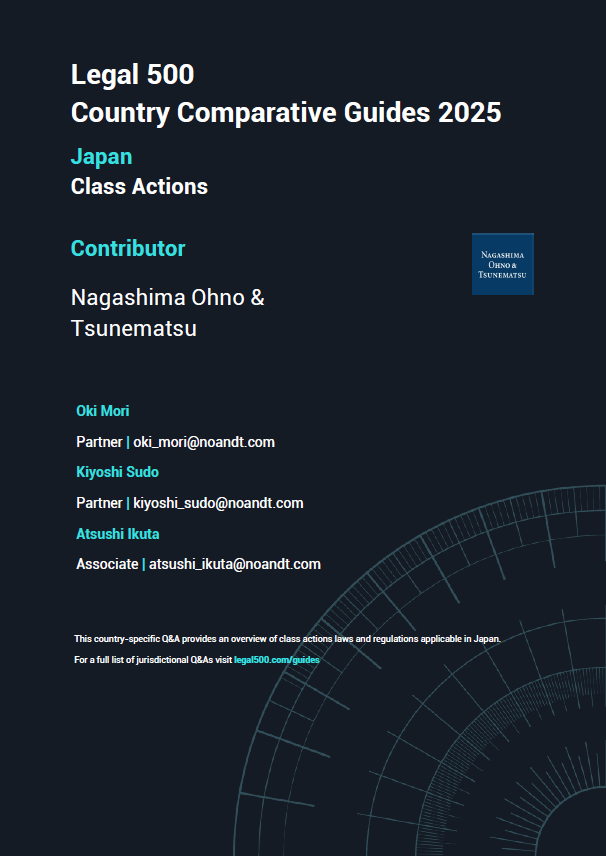
NO&T Asia Legal Review
In January 2022, the Vietnam Ministry of Industry and Trade has released the draft of the new Law on Protection of Consumer’s Rights ("LPCR") for public comments and consultation. The draft maintains 13 articles from the current LPCR, amends 38 articles, and adds 29 new articles.
Set out below is a summary of the new important provisions of the draft.
Currently, the provisions governing consumer information protection have been mentioned in a number of different regulations such as Law on Information Technology, Law on Cyberinformation Security, Law on Electronic Transactions, or Decree 52/2013/ND-CP on E-commerce. The current LPCR (No.59/2010/QH12) has only one article regulating basic provisions on this issue (Article 6): “Consumers’ information shall be kept safe and confidential when they participate in transactions relating to use of goods or services, except where competent state agencies require the information.”
The draft LPCR supplements a definition of consumer information and includes provisions related to the protection of consumer information by way of 6 articles (from Article 7 to 12). Specifically, the LCPR provides that “the consumer’s personal information includes consumers’ personal information, information about the consumption process and other information given by consumers or organizations and individuals in connection with transactions” (Article 3.9 of the draft).
Articles 7 to 12 of the draft LPCR set out many responsibilities of traders with respect to the protection of consumer information as follows.
| Current LPCR | Draft LPCR | |
|---|---|---|
| Responsibility when authorizing a third party to collect, store, use personal information of consumers |
|
|
| Responsibility on establishing and publishing a policy on personal information protection |
|
|
| Responsibility on notification when collecting consumer’s personal information |
Traders shall notify clearly and openly the consumer of the purpose of the collection and use of consumer information in advance (Article 6.2.a) |
|
| Responsibility on using of consumer’s information |
|
|
| Responsibility on ensuring safety and security of consumers’ personal information |
|
|
| Responsibility on updating, adjusting, transferring or destroying personal information of consumers |
|
|
These regulations are very similar to the provisions on the protection of the personal information of consumers in e-commerce activities stipulated in the Decree 52/2013/ND-CP. Thus, under the draft LPCR, consumers in e-commerce transactions as well as other types of transactions will be protected with the same policy.
One of the notable points in the draft LPCR is the regulation on the protection of the rights of vulnerable consumers. This is a completely new regulation compared to the current LPCR. Vulnerable consumers under the draft LPCR include elderly people, people with disabilities, children, ethnic minorities, and other vulnerable groups in accordance with relevant laws (Article 3.10).
For vulnerable consumers, the traders are requested to implement the following policies:
The draft LPCR adds many new responsibilities of traders to consumers as follows:
Business organizations and individuals are responsible for:
Responsibilities for defective products are stipulated in the current LPCR (Article 22). The draft LPCR divides defective products into 2 groups:
(i) Defective products of group A means the products capable of causing damage to the health and life of consumers and
(ii) Defective products of group B means the products capable of causing damage to consumers’ property.
The product recall process is basically the same as the current regulation, however, for products of group A, traders, when detecting a defective product, must take all necessary measures to stop the supply of defective goods in the market. For the products of group B, this action is not required.
The draft LPCR adds a new regulation on the responsibility of the competent authorities on supervising the recall of defective products to ensure that the recall is carried out in accordance with the notified contents.
The draft LPCR adds a new chapter addressing some particular trading forms, i.e., distant transactions, continuous provision of services, home sales, and specifying the trader’s responsibilities when transacting with consumers. These types of transactions are increasingly popular in Vietnam but pose many potential risks to consumers.
Currently, some regulations related to such transactions are sporadically regulated in many different legal documents, such as Decree 99/2011/NĐ-CP guiding a number of articles of current LPCR, Decree 40/2018/NĐ-CP providing a regulatory framework for multi-level marketing, or Decree 52/2013/ND-CP on e-commerce. However, they are assessed as incomplete and lacking in specificity. The supplement of specific provisions into the LPCR with greater legal effect is expected to improve the effectiveness of consumer protection.
The deadline for the MOIT to receive comments is 10 March 2022. The new LPCR will be enacted in the middle of next year and is likely to take effect in early 2024. With many new and specific regulations, the new LPCR is expected to protect consumers’ interests more effectively. Traders must take note of these new regulations and change and update their policies in due course when selling goods or providing services to consumers.
This newsletter is given as general information for reference purposes only and therefore does not constitute our firm’s legal advice. Any opinion stated in this newsletter is a personal view of the author(s) and not our firm’s official view. For any specific matter or legal issue, please do not rely on this newsletter but make sure to consult a legal adviser. We would be delighted to answer your questions, if any.


(August 2025)
Oki Mori, Akiko Inoue (Co-author)


(July 2025)
Oki Mori, Eriko Ogata, Saki Kurachi, Natsuki Ito (Co-author)


(June 2025)
Junichi Ikeda, Takayuki Fujii, Satoyuki Nakano, Tomoaki Kitaguchi (Co-author)


(June 2025)
Oki Mori, Kiyoshi Sudo, Atsushi Ikuta (Co-author)


(August 2025)
Oki Mori, Akiko Inoue (Co-author)


(June 2025)
Junichi Ikeda, Takayuki Fujii, Satoyuki Nakano, Tomoaki Kitaguchi (Co-author)


(June 2025)
Oki Mori, Kiyoshi Sudo, Atsushi Ikuta (Co-author)


(November 2024)
Oki Mori, Mai Umezawa (Co-author)


(August 2025)
Oki Mori, Akiko Inoue (Co-author)


(June 2025)
Junichi Ikeda, Takayuki Fujii, Satoyuki Nakano, Tomoaki Kitaguchi (Co-author)


(June 2025)
Oki Mori, Kiyoshi Sudo, Atsushi Ikuta (Co-author)


Yothin Intaraprasong, Chattong Sunthorn-opas, Thunsinee Sungmongkol (Co-author)


Supasit Boonsanong, Thananya Pholchaniko, Phareeya Yongpanich (Co-author)


Patricia O. Ko


Claire Chong, Nozomi Kato (Co-author)


Yuan Yao Lee


Supasit Boonsanong, Thananya Pholchaniko, Phareeya Yongpanich (Co-author)


Patricia O. Ko


Claire Chong, Nozomi Kato (Co-author)


Yuan Yao Lee


Hoai Truong


Ngoc Hoang


Long Nguyen


Nga Tran